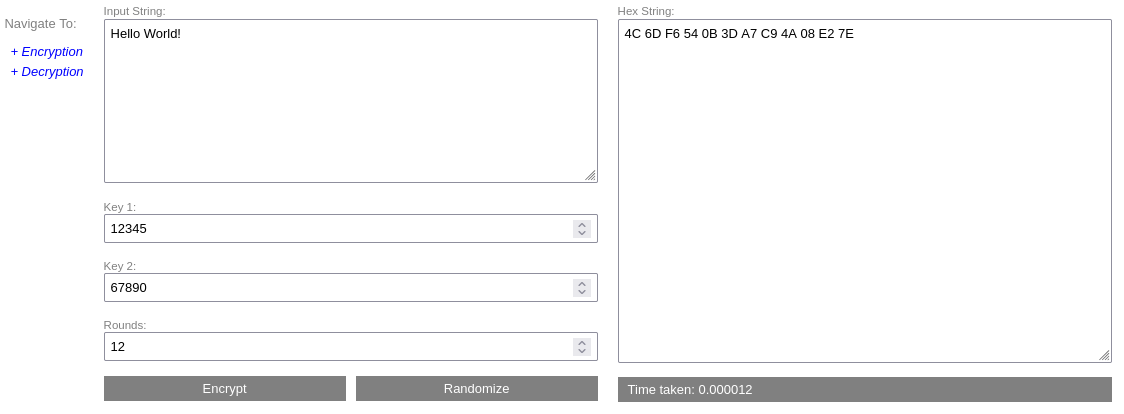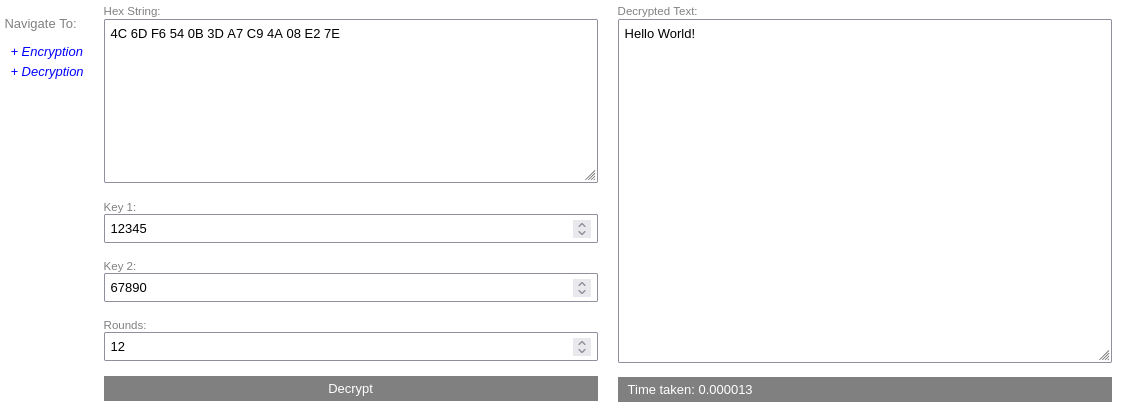Baseline
HomeLighting Speed Encryption
The Baseline project is a C program designed to implement a fundamental encryption algorithm. This algorithm demonstrates core cryptographic techniques, including key scheduling, permutation, XOR operations, and nonlinear transformations to securely encode input strings. This document offers a comprehensive overview of the algorithm's design, operational complexity, and additional technical insights.
Algorithm Description
Key Schedule Generation
The key schedule in this encryption algorithm is established using two 32-bit keys and a configurable number of rounds. For each round, a specific byte value is computed based on the provided keys and the round number. This byte value plays a crucial role in the permutation and XOR operations performed during the encryption process, ensuring a robust transformation of the input data.
Complexity Analysis
Time Complexity
The time complexity of the encryption algorithm is O(n * r), where n represents the size of the input array and r denotes the number of rounds. This complexity arises because each round requires processing the entire array, and the total number of rounds influences the overall time required for encryption.
Space Complexity
The space complexity of the algorithm is O(n), accounting for the storage needs of the input array, the encrypted output array, the random addition array, and the key schedule. This complexity assumes that the size of these arrays scales proportionally with n, the size of the input data.
Screenshots

